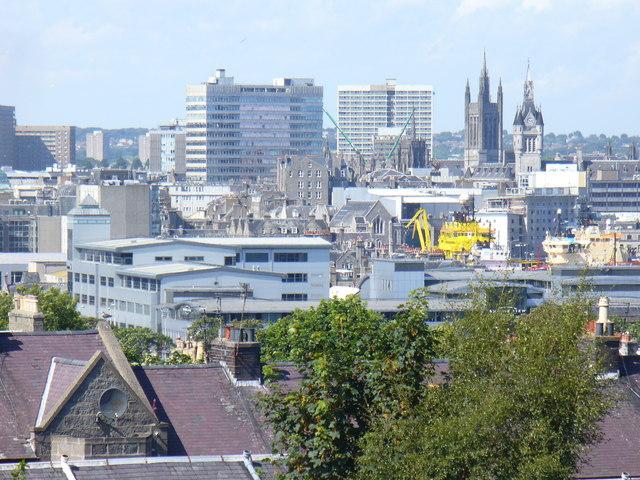Whichever Side Wins Scotland Independence Vote, UK Faces Change
September 17, 2014
STIRLING, Scotland — Seven hundred years ago, Robert the Bruce reclaimed Scottish independence here with the help of a two-handed sword. Thursday, Scotland’s current first minister, Alex Salmond, hopes to repeat that success with the help of 16-year-old voters.
The cynical view is that Salmond’s Scottish National Party, which supports a lower voting age in general, demanded that 16-year-olds be enfranchised because it thought that younger voters were more likely to vote with their hearts and would therefore back the romantic option of independence and change.
The reality, said Thomas C. Lundberg, a political scientist at the University of Glasgow, is that it’s been hard to effectively poll voters so young, and what polls there have been suggest that these youngest of voters are likely to vote “no” on independence.
“The younger voters appear to be going with their parents, or perhaps their teachers,” he said. “They don’t appear to be quite as independent as voters who are already off at university.”
Such speculations color predictions about the outcome of Thursday’s referendum more than two years after Salmond kicked off the effort for independence, and more than a year after Scots learned that they would be asked to decide just a single, simple question when they go to the polls: “Should Scotland be an independent country?”
But however the question is answered — results are expected early Friday morning — it’s become clear that complications will be great, whether it is “yes” or “no.”
Scotland has been entwined with England since the Act of Union went into effect in 1707 in what came to be called the United Kingdom, with the addition of Wales and Northern Ireland.
The notion of un-entwining these lands has convinced experts and politicians that the ramifications of this election will extend far beyond Scotland’s southern border no matter which side wins.
“This is a vote that will dramatically affect the lives of 60 million people in the United Kingdom,” said Richard G. Whitman, a European politics expert at the University of Kent. “But only 5 million Scots have the right to vote on the matter. What is clear is that this vote, yes or no, is the beginning of the end of the United Kingdom as we know it.”
Politicians from the south, led by British Prime Minister David Cameron, in recent weeks have clearly sensed that their initial views — that independence was a sure-fire loser — were wrong.
Experts believe that Cameron thought the vote would be a way for rebels to voice dissatisfaction but that the loss would put the notion of independence to bed, perhaps for generations. In recent weeks, however, polls have shown the race is neck and neck. In a last-ditch effort to head off support for independence, Cameron and other power brokers in the United Kingdom Parliament have made wide-ranging promises of new powers for Scotland in hopes that they will persuade voters to stay.
Those promises are almost certain to prove controversial, especially one that would let Scotland set its own income tax levels. The British Parliament in London would have to approve the change.
“Nothing will be more divisive,” said Iain Begg, a U.K. policy expert at London’s Chatham House think tank. The problem, Begg noted, is that if Scots set their own taxes, residents in the rest of the United Kingdom will wonder exactly why the Scots will have any say on financing outside of Scotland. If they’re playing by such very basic different rules, are they really part of a union at all?
Still, there’s no going back for Cameron and his supporters.
“They cannot simply not deliver on such promises,” Begg said. “They’d be looking at open revolution in the streets. This election is the beginning of British federalism.”
There’s been some head scratching among British experts as well about other deals Cameron struck that led to this point. For one, he apparently rejected a proposal Salmond had offered of adding a third option to the ballot, beyond the yes or no to independence.
That third option was called “maximum devolution,” and it is essentially what Cameron is now offering Scots if they’ll vote no. Cameron initially rejected it because, experts believe, the prime minister thought that faced with independence or the status quo, Scots would choose the status quo.
Now Scotland and the rest of Great Britain are just hours away from knowing if that was correct.
Writing in Wednesday’s Daily Record newspaper in Scotland, Salmond urged everyone to head to the polls.
“It’s the greatest, most empowering moment any of us will ever have,” he wrote. “It’s about taking your country’s future into your hands.”
Philip Habel, another University of Glasgow political scientist, noted that all eligible age groups are expected to vote. At least, he said, they registered to vote. About 97 percent of eligible voters registered for this referendum.
To accommodate what is expected to be a record-breaking voter turnout, the polls will remain open until 10 p.m. Thursday.
“Generally, those with more to lose appear to be more interested in maintaining the status quo,” said Habel. “This election has seen a lot of formerly disaffected potential voters get very active in the political process, however. Whatever the outcome, this is an encouraging aspect to the vote: The Scottish people, and almost all of them, will be involved in deciding their future.”
———
©2014 McClatchy Washington Bureau
Visit the McClatchy Washington Bureau at www.mcclatchydc.com
Distributed by MCT Information Services








